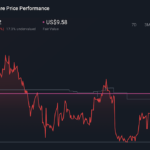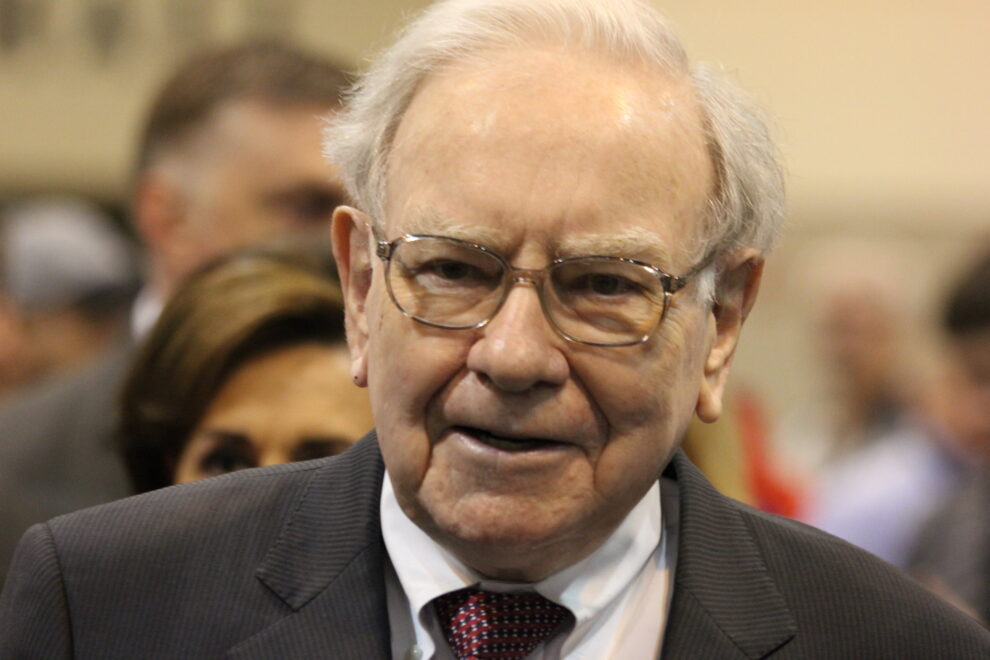
Want to know how one of history’s most successful investors is playing the AI trend?
Berkshire Hathaway CEO Warren Buffett is best known as a value investor, but few people in history can claim to have delivered better long-term growth. If an investor purchased a $1,000 stake in Berkshire on the day that the Oracle of Omaha purchased a controlling stake in the business and became its leader, that position would now be worth roughly $39.7 million.
With that kind of performance, it’s no wonder people look to Buffett for investing insights and wisdom. And in the investing world, no topic is bigger than artificial intelligence (AI) right now. So if you’re looking to get a read on how Buffett is playing the AI revolution, read on for a look at two growth stocks that account for 23.8% of Berkshire’s $298 billion stock portfolio.
How is Buffett playing the AI revolution?
Keith Noonan: Apple (AAPL -0.50%) has played a bigger role than any other stock in pushing Berkshire Hathaway to market-beating performance over the last five years. Buffett’s company first initiated a position in Apple in the first quarter of 2016, and the combination of continued purchases and powerful gains for the stock made it the investment conglomerate’s biggest position. Today, Berkshire owns 300 million shares of Apple — and the stock accounts for 23.1% of its total portfolio.
As Berkshire’s largest overall holding, Apple is the company’s largest AI bet by definition — and the tech giant has some strong advantages in the space and the technology industry at large. Apple’s iPhones continue to dominate the global market in terms of revenue- and profit-generating power, and the company’s industry-leading mobile platform should benefit from AI integration on multiple fronts.
Apple is likely just scratching the surface of the long-term value that artificial intelligence can bring to the iPhone business, and it’s still just beginning to make AI central to its highly profitable software and services business. The company will almost certainly make the revolutionary tech a bigger part of its strategy when it comes to wearables, smart homes, and other categories.
But despite emerging performance catalysts and long-term growth opportunities, Berkshire has actually been reducing its position in Apple stock. Since first selling Apple in the fourth quarter last year, Buffett’s company has unloaded roughly 605 million shares — reducing its position by approximately 70%.
While the rest of the market has been largely bullish on the broader artificial intelligence revolution, Berkshire’s recent stock sales have actually reduced the company’s exposure to the trend. Instead, Buffett’s company has moved to bolster its cash pile.
Berkshire now holds a record $325.2 billion in cash and short-term bond investments. The shift signals that the company is taking a cautious approach to stocks and may believe valuations for Apple and the market at large have become stretched.
With some significant macroeconomic and geopolitical risk factors on the horizon, Berkshire’s recent moves are a reminder that investors should be keeping valuations firmly in mind even though the AI revolution is still in the early stages.
Amazon might be the best AI stock on the market
Jennifer Saibil: Buffett only has a small position in Amazon (AMZN -0.90%), which isn’t a typical Buffett stock and which he didn’t buy until 2019. Berkshire Hathaway owns 10 million shares, and they account for 0.7% of the total equity portfolio.
When Buffett originally invested in Amazon, Amazon Web Services (AWS) was still up and coming. Amazon has become so much more than e-commerce, and AWS is now one of its fastest-growing segments. More than that, it accounts for more than 60% of the company’s total operating income.
And even more than that, it’s now been supercharged with AI. The emergence of ChatGPT stunned the world when it launched two years ago, and on the heels of that, Amazon followed with its own generative AI capabilities and services. And since it’s Amazon, it’s doing it big.
CEO Andy Jassy said that over the past year-and-a-half, Amazon has rolled out more new AI features than all of its competition combined, and it offers a huge range of solutions to fit every kind of demand and budget.
It has three tiers of services: completely customizable solutions for programmers to build their own large-language models (LLMs), semi-customizable solutions using Amazon’s trained LLMs, and turnkey solutions for small businesses that need low prices and ease of use. Amazon is also going beyond the chips it uses from AI partner Nvidia and developing its own chips for customers looking for budget options.
AI is also speeding up adoption of AWS’ cloud services. Businesses that want to partake in the incredible abilities that generative AI offers need to be on the cloud, and new clients are joining AWS at newly accelerated rates. AWS sales increased 19% in the third quarter.
Management sees a huge opportunity in AI. It’s already a multibillion-dollar run-rate business, and Jassy said earlier this year, “I don’t know if any of us have seen a possibility like this in technology in a really long time, for sure, since the cloud, perhaps since the internet.”
If you’re looking for a safe way to get exposure to the best that AI has to offer, Amazon is an excellent choice.
John Mackey, former CEO of Whole Foods Market, an Amazon subsidiary, is a member of The Motley Fool’s board of directors. Jennifer Saibil has positions in Apple. Keith Noonan has no position in any of the stocks mentioned. The Motley Fool has positions in and recommends Amazon, Apple, Berkshire Hathaway, and Nvidia. The Motley Fool has a disclosure policy.








